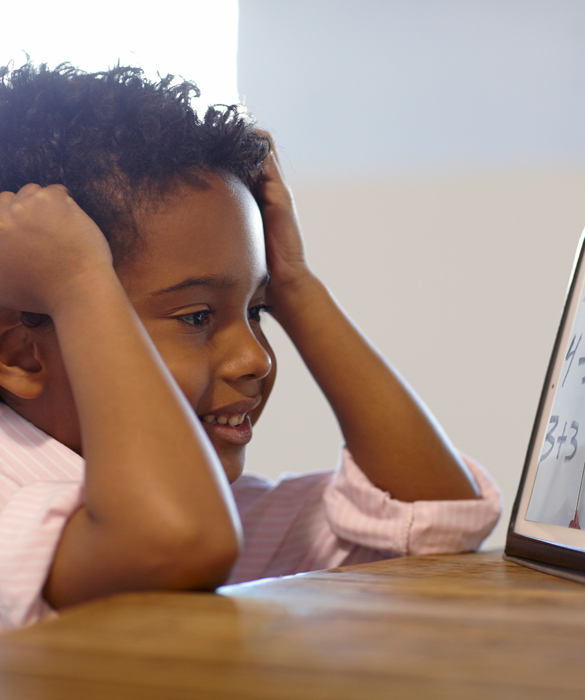Brain Drain

Let's face it. With summer vacation comes summer brain drain. And every year, kids lose up to three months of math comprehension during the long break, according to research published on the National Summer Learning Association website.
How can parents bridge the achievement gap while the kids are out of school? Here are 10 tips to help beat summer learning loss, while still staying active and having fun.
Start at the Library

Most libraries have summer reading programs that award kids points for how many books they read. And it doesn’t stop when your child finishes the book, says Jay Brown, director of integrated marketing at literacy nonprofit Reading Is Fundamental. Talk to your child about what she's reading, and ask questions about characters and story details to get her thinking.
Math Is Everywhere

Math opportunities are all around you. Take younger kids to the grocery store and let them count the items in the cart. Or ask them to add up the cost of the items. When you’re driving, have kids compare the number of green cars they see with the number of red cars.
Use Online Resources

If the library isn’t convenient, you can start a summer reading camp online. Education.com has several resources, including an online reading program called Do-It-Yourself Summer Reading Camp. New themes are introduced each week, complete with arts and crafts activities and conversation topics. Older kids can read 10 books, take the summer reading quiz and enter to win a Kindle prize pack.
Make Learning Fun

Relax, Brown says. It’s summertime and although you may want kids to learn, you don’t want them to feel as if they’re still in school. Make reading something they will want to do—not something that they have to do. Find books they love, and don’t discount graphic novels and comic books. The books may have a lot of pictures, but they will still boost vocabulary and comprehension.
Lead by Example

Read in front of your kids. It seems simple, but reading in front of your children can have a huge impact on them. When kids see you reading books, newspapers and eBooks, they will follow your example and see the importance of reading for pleasure. “Send a clear message that literacy is important,” Brown says.
The Write Stuff

Get kids talking—but also writing. The National Summer Learning Association recommends having kids keep a summer journal about the books they’ve read to get them writing, thinking and talking. But don't stop there! Journals can include anything from their thoughts and questions to the stories they write, themselves.
Technology Is Your Friend

There are so many apps out there that can help kids practice math and reading. Common Sense Media has a list of math apps for kids ages 3 to 13 that go from learning to count all the way up to geometry. There’s even an app to teach parents how to engage children in learning. It’s called Parents Play and Learn from PBS Kids and was created after a survey discovered that many parents have anxiety about teaching kids math.
Get Outside

Make any outing a learning opportunity. If you’re going to the beach, get a book about ocean life. If you’re going camping, find out what wildlife you’ll find at the campsite. Take kids to a local museum or historic site, and talk and read about it before you go. Go on a bike ride or a walk to get kids' bodies moving and conversations started.
Cook Together

Cooking can involve both reading and math skills, and kids won’t even know they’re learning. Have kids look through a cookbook or cooking website, and pick out a recipe. Encourage your child to read the recipe to you. Let him measure out ingredients and talk about fractions. Count out the number of cookies you’re making, or have him multiply the number of cookies on each cookie sheet.
Find an Affordable Summer Program

Summer camp can be pricey, but there are alternatives. Local parks and libraries have summer activities for a couple hours a day if full-day camp isn’t an option. Some school districts offer summer enrichment programs at reduced cost or free for qualifying students.
MORE: 10 Awesome Summer Camps




